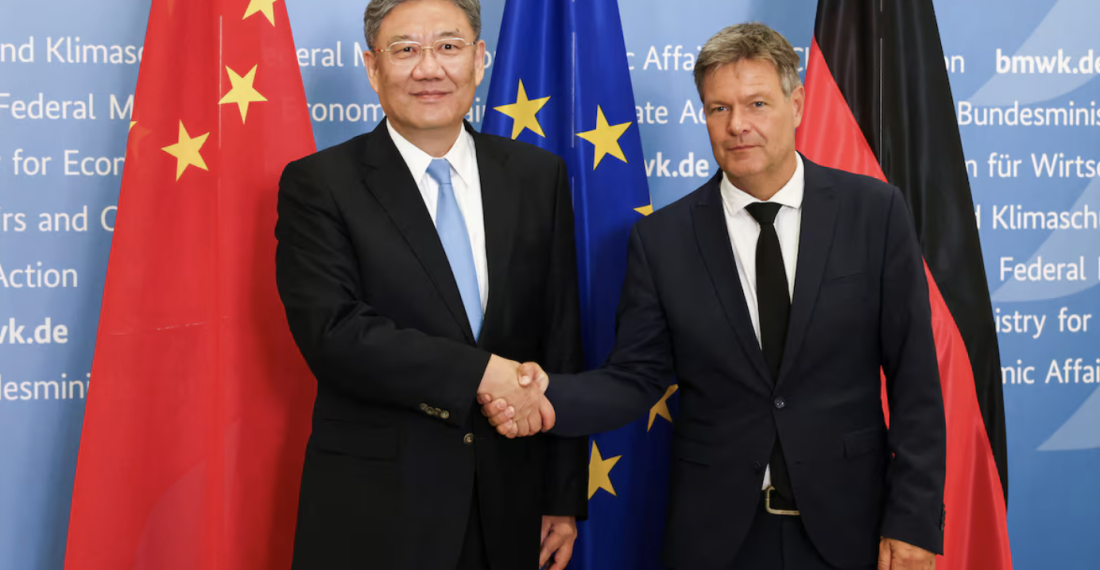China's Commerce Minister Wang Wentao has expressed concern that the European Union's decision to impose tariffs on electric vehicles (EVs) will "seriously hamper" trade and investment cooperation and negatively affect both China and Germany. During talks with German Vice-Chancellor and Economics Minister Robert Habeck on Tuesday (17 September), Wang stressed the importance of finding a solution in line with World Trade Organization rules to avoid escalating trade tensions between China and the EU. The European Commission is considering final tariffs of up to 35.3% on Chinese-made electric vehicles, on top of the standard 10% import duty on cars.
Wang, who is in Europe for talks on the EU's anti-subsidy case against Chinese-made electric cars, expressed hope that Germany would push for a cooperative solution between the European Commission and China. Habeck reiterated Germany's commitment to free trade, welcomed Chinese car and parts companies to invest in Europe, and promised to encourage the European Commission to seek a solution to avoid trade conflicts.
Wang also met with Wolfgang Schmidt of the German Chancellery in Berlin, where he stressed China's preference for resolving the anti-subsidy dispute through dialogue and consultation. Wang expressed disappointment at the EU's decision to ignore China's efforts and impose high countervailing duties, rejecting a solution proposed by the Chinese industry. However, he stressed that China will continue its negotiation efforts "to the last moment" and urged Germany to play an active role in urging the European Commission to show political will and resolve the case cooperatively.







